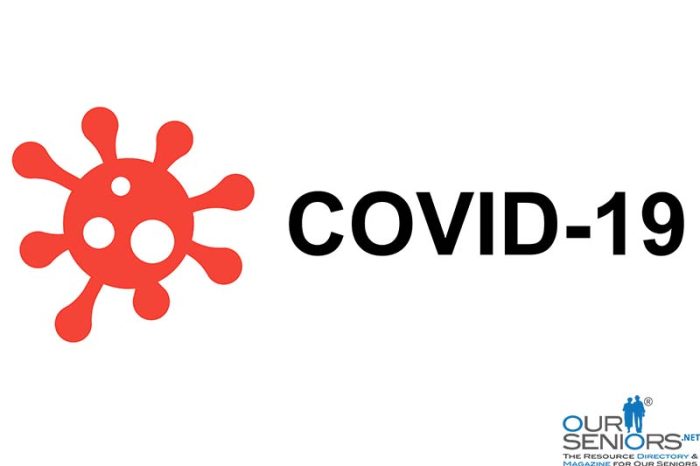In nearly two years since the first cases appeared in the U.S., we have learned a lot about the effects Covid-19 may have on our bodies. Symptoms of the virus may appear 2-14 days after exposure. The most common of these symptoms include fever or chills, cough, shortness of breath, fatigue, body aches, headache, new loss of taste or smell, sore throat, congestion or runny nose, nausea or vomiting, and diarrhea. A lot of this sounds familiar because many symptoms of Coronavirus are no different than those of a cold or flu.
If you are asymptomatic or experience minor symptoms. You may choose to self-care in quarantine. The CDC recommends the treatments:
- Don’t exert yourself. Get plenty of rest and stay hydrated. Drinking water throughout the day is important, and there are plenty of other fluids you can find (low-sodium and low-sugar) that replenish nutrients you may have lost because of a decreased appetite.
- Take over-the-counter medicines, such as acetaminophen, to help with mild headaches and minor aches or pains you may feel. Follow recommended doses and instructions exactly to prevent any complications with medications you are already taking.
- Stay away from others. Designate a quarantine space (such as a bedroom) where you can separate yourself from anyone in your home that has not been infected. Have all your meals in this quarantine space and make sure you wipe down surfaces frequently.
If you test positive for Covid and experience any serious symptoms, such as trouble breathing, persistent pain or pressure in the chest, new confusion, inability to wake or stay awake, and pale, gray, or blue-colored skin, lips, or nail beds you should seek medical attention. However, if you test positive but aren’t feeling any severe symptoms, you may want to treat yourself at home while in quarantine. Self-care treatments that include the vitamin and supplement regimens listed above have shown positive results that have millions of people feeling great within a week or two of testing positive.
Self-Care Vitamin and Supplement Treatments
Many people that have been infected with Covid but do not have any of the serious symptoms have noted that self-care which includes supplements and alternative medicines that have helped them relieve and overcome symptoms quickly. The key is boosting your immune system using natural products that people often overlook. They are available in select health stores, pharmacies, and supermarkets. Some of the vitamins and supplements people have said are the most effective in treating Covid-19 include:
- Vitamins B, C, D, and Zinc
- Bee Propolis
- Elderberry
- Mushrooms
- Astragalus
- Selenium
- Garlic
- Andrographis
- Licorice Root
- Pelargonium Sidoides
- Curcumin
- Echinacea
- Acai Berry
After You Have Had Covid, A Vaccine Might Not Be Needed
For months we have heard high-ranking government and health officials recommend that everyone, especially seniors that could be at higher risk of contracting the disease, should get one of the two approved vaccines (e.g., Moderna or Pfizer). But many people have had concerns about side effects that could come from a vaccine, especially because of worries that it could negatively interact with any health and prescription medication regimens people might.
Research certainly suggests that getting the Covid-19 vaccine is a good idea to help stop the spread. But what if you have had Covid-19 and have fully recovered? Antibodies are proteins created naturally to fight infections. Those who have had the virus carry antibodies that fight off the disease like the way antibodies work to fight off a cold or flu after you have already had a particular strain. Only a small amount of the millions of patients who have contracted the virus have been reinfected. Many people who have been infected and recovered from the virus have donated blood plasma to further research to develop treatments the FDA authorized to use for severely ill and hospitalized patients.
Monoclonal antibody therapy is another proven option to help those that are at high risk and have been exposed to the virus. The FDA has extended the use of this therapy for preventive use regardless of vaccination status and if you are treated soon after exposure. The antibodies used in this therapy are similar to the ones that are created naturally in your body. The monoclonal antibodies are mass-produced and are designed to recognize and attack a specific component of Covid-19. In clinical trials, the treatment has a reduction in hospitalization and death in 70% of patients and has decreased the odds of catching the virus after exposure by over 80%. Therapy of this type is available across the U.S. and is available for free.
So, if you are one of the millions that have had Covid-19 and have fully recovered, you may want to think twice about getting the vaccine. If you have any reservations, be sure to discuss them with your doctor. Getting informed about how antibodies work and your chances of getting reinfected is a conversation you should have to make the best choice for your personal health.

